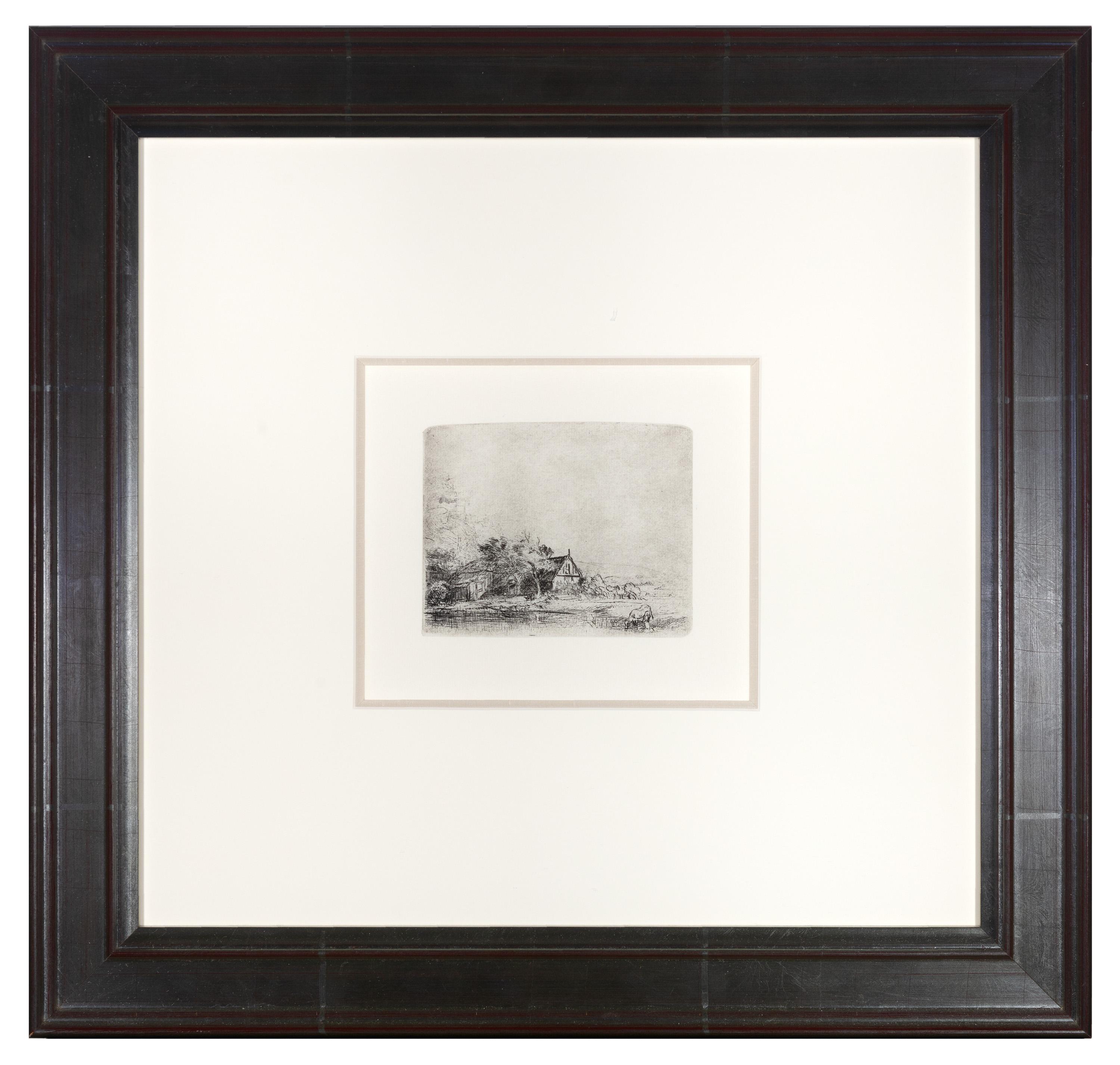Questions & Answers
Our trusted network of 1stDibs sellers answer common questions
Are Rembrandt prints worth anything?
1 Answer

Yes, Rembrandt prints may be worth something. In 2018, a drypoint print by the Dutch artist called Christ Presented to the People sold for more than $3 million. Rembrandt's foremost contribution to the history of printmaking was his transformation of the etching process from a relatively new technique into a true art form. Few of his paintings left the Dutch Republic in his lifetime, but his prints were circulated throughout Europe, bolstering his reputation. Generally, prints that bear the artist's signature are worth more than later prints based on his originals. The historical significance, provenance, image quality and overall condition will also impact the potential value. If you own a Rembrandt print, a certified appraiser or knowledgeable art dealer can provide you with an estimated fair market value for the piece. On 1stDibs, shop an assortment of Rembrandt van Rijn art.
1stDibs ExpertSeptember 16, 2024
Related Questions
- Are signed prints worth anything?2 Answers
- Are Vargas prints worth anything?1 Answer
- Are Dalí prints worth anything?1 Answer
- Are antique prints worth anything?1 Answer
- Are lithograph prints worth anything?1 Answer
Shop for Rembrandt van Rijn Art on 1stDibs
Self Portrait, Drawing at the Window
By Rembrandt van Rijn
Located in San Francisco, CA
Artist: Rembrandt Van Rijn (Dutch, 1606-1669)
Title: Self Portrait, Drawing at the Window
Year: 1648
Medium: Etching
Paper: Verge paper
Image (plate mark) size: 6.35 x 5.25 inch...
Category
Mid-17th Century Old Masters Figurative Prints
Materials
Etching
Bust of a Man Wearing a High Cap, The Artist's Father
By Rembrandt van Rijn
Located in San Francisco, CA
Artist: Rembrandt Van Rijn (Dutch, 1606-1669)
Title: Bust of a Man Wearing a High Cap, The Artist's Father
Year: 1630
Medium: Etching
Paper: Verge paper
Image (plate mark) size: ...
Category
Mid-17th Century Old Masters Figurative Prints
Materials
Etching
The Archangel Raphael Leaving Tobias' Family - Etching by Rembrandt - 1641
By Rembrandt van Rijn
Located in Roma, IT
The Archangel Raphael Leaving Tobias' Family is an etching by Rembrandt executed in 1641. This etching is a proof of the 3rd state (of 4) before of the diagonals on the ground at the...
Category
1640s Old Masters Figurative Prints
Materials
Etching
$13,852 Sale Price
20% Off
Peter and John Healing the Cripple at the Gate... - Etching by Rembrandt - 1659
By Rembrandt van Rijn
Located in Roma, IT
Etching, excellent proof of II state on IV, before the retouching of the ground and the vault on the right, margin line.
Ref. Bartsch, Hollstein 94; Hind 301; New Hollstein 312; Sto...
Category
1650s Old Masters Figurative Prints
Materials
Etching
17th century etching Rembrandt biblical scene crucifixion figures
By Rembrandt van Rijn
Located in Milwaukee, WI
Rembrandt's print 'Christ Crucified Between Two Thieves: an oval plate' is one of the most captivating of the artist's oeuvre. Etched to an oval rather than a rectangular plate and t...
Category
1640s Dutch School Figurative Prints
Materials
Paper, Etching, Printer's Ink, Drypoint
The Beheading of St. John the Baptist - Etching by Rembrandt - 1640
By Rembrandt van Rijn
Located in Roma, IT
Beautiful proof of I state on III before the white space under the sword is covered.
Without Margins.
Very good condition.
Ref. Bartsch 92; Biörklund 40-B; Hollstein (White and Bo...
Category
1640s Old Masters Figurative Prints
Materials
Etching
